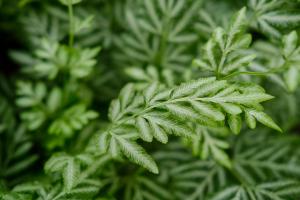Introduction
When we think of ducks, we often picture them swimming in ponds or lakes, with their heads bobbing in and out of the water as they search for food. But what exactly do ducks eat? Particularly, do ducks eat water plants?
Types of Ducks
Before we delve into the topic of ducks' dietary habits, it's important to note that there are many different types of ducks, each with their own unique feeding patterns. Some ducks, such as the diving duck, prefer to hunt for fish and other aquatic animals in deeper water. Other ducks, such as the mallard, are dabbling ducks, meaning they feed by tipping upside down in the water and grazing on plants near the surface. Still, others, like the muscovy duck, are omnivores and will eat a variety of foods, including insects and small mammals in addition to plants and seeds.
Do Ducks Eat Water Plants?
The short answer is yes, ducks do eat water plants. In fact, in many cases, they rely heavily on these plants for their survival. Dabbling ducks like the mallard feed mainly on aquatic plants, such as cattails, duckweed, and water lilies. These plants provide ducks with essential nutrients like carbohydrates, proteins, and fats, as well as important vitamins and minerals.
The Role of Water Plants in a Duck's Diet
Water plants are not only crucial for providing ducks with essential nutrients, but they also play a role in their digestive system. Ducks have a unique digestive system that allows them to break down tough plant fibers in a way that many other animals cannot. Inside a duck's digestive system, there are pockets called ceca that house bacteria and microbes that help break down cellulose in plant matter. Without these ceca, ducks would not be able to extract the nutrients they need from the tough, fibrous material found in many water plants.
Other Foods Ducks Eat
While water plants are an important part of a duck's diet, they are not the only food source for these birds. As mentioned earlier, some ducks, such as the diving duck, feed on fish and other aquatic animals. Others, like the muscovy duck, will eat insects, small mammals, and even carrion if it is available. Additionally, many ducks supplement their diet with seeds and grains found in fields and pastures near bodies of water.
Conclusion
In conclusion, ducks do eat water plants, and in many cases, these plants are a vital component of their diet. Water plants provide ducks with essential nutrients, help them digest their food, and in some cases, serve as an important source of shelter and protection. However, it's important to remember that different types of ducks have different feeding habits, and some may rely more heavily on water plants than others. By understanding the role of water plants in a duck's diet, we can gain a greater appreciation for these fascinating birds and the ecosystems they inhabit.

 how many times do yo...
how many times do yo... how many planted tre...
how many planted tre... how many pine trees ...
how many pine trees ... how many pecan trees...
how many pecan trees... how many plants comp...
how many plants comp... how many plants can ...
how many plants can ... how many plants and ...
how many plants and ... how many pepper plan...
how many pepper plan...
































